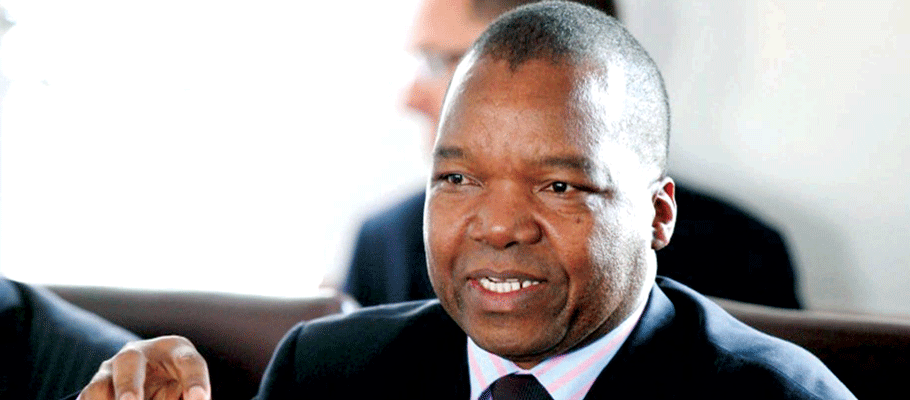Source: Mangudya faces daunting task – The Zimbabwe Independent September 13, 2019
Kudzai Kuwaza
RESERVE Bank of Zimbabwe governor John Mangudya will soon present his mid- term Monetary Policy Statement, tasked with introducing a cocktail of measures to instill confidence in the market amid a deepening economic crisis.
This comes at a time the Zimbabwean dollar, the sole legal tender in the country since Statutory Instrument 142 of 2019 was promulgated on June 24, has lost massive value against major currencies.
The Zimdollar has lost more than 340% of its value since the last monetary policy statement in February this year when the central bank adjusted the
exchange rate from the 1:1 fixed exchange rate between the US dollar and the Zimbabwean dollar to peg the rate at 1:2,5.There has been a bloodbath on the Zimbabwe Stock Exchange (ZSE) as the bourse has lost more than US$2,4 billion in the last two months from its peak market
capitalisation of US$4,75 billion on the eve of June 23, 2019 as a result of Statutory Instrument 142.The Zimdollar-to-US dollar rate has fallen to 15 as of Wednesday this week.
The interbank forex market introduced by the Reserve Bank to improve forex circulation has not been able to satisfy the needs of the market with companies
bemoaning the inadequate allocation of forex from the facility. Finance minister Mthuli Ncube has admitted that the interbank market needs to be fine-tuned
and it remains to be seen how Mangudya will do so when he presents the mid-term monetary policy .The interbank market has moved from trading less than US$500 000 in the initial days to more than US$2 million per day currently. So far, close to US$680
million has been traded on the interbank exchange market.He is expected to address the liquidity crisis in the market as well as the cash shortages. This has resulted in citizens having to buy cash at premiums as
high as 50%.Mangudya’s policy comes at a time there is an outcry over the foreign currency threshold limits set by the Reserve Bank of Zimbabwe.
Sectors such as the mining sector have said the forex retention threshold limits have crippled companies’ ability to acquire adequate machinery for operations
and has been identified as one of the reasons why there has been a decline in the production of various minerals.Mangudya also faces a daunting task of stopping the bleeding in the banking sector which has been affected by the introduction of local currency.
Mangudya will need to ensure he raises banks’ capital requirement which is currently pegged at $100 million but has devalued after currency reforms,
incapacitating banks’ aptitude to lend.Lending is the traditional cash cow of banks and the central bank boss needs to address this with urgency.
Mangudya will also be under pressure to address the declining gold deliveries due to the currency reforms by the central bank. Gold deliveries to Fidelity
Printers and Refiners plunged sharply in June this year, owing to a lack of confidence among small-scale miners, the biggest producers following government’s
decision to outlaw the multi-currency system.A schedule of deliveries shows that the total amount of gold delivered to Fidelity Printers, which is the sole legal buyer of the mineral, nosedived from
2,323 kilogrammes in May 2019 to just 1,658kg in June. It remains to be seen what incentives the central bank will introduce to curb falling deliveries.The overnight interest rate of 50% by the central bank will also be another issue Mangudya is expected to address. The interest rates have an adverse impact on
the productive sectors of the economy.The central bank in June increased the interest rates on its overnight window to 50% from 15% per annum in a bid to tame inflationary pressures alongside other
measures meant to buttress the strength of the local currency.Economist Prosper Chitambara said it is imperative to improve the operations of the interbank market.
“The governor will be expected to enhance the operations of the interbank market,” Chitambara said. “There is need to centralise its operations. The operations
of the interbank are currently decentralised. There is need for transparency on the interbank market.”He said there was need to revise the foreign currency thresholds for the various sectors. Chitambara added that Mangudya needs to introduce measures that will
ease liquidity challenges in the market.Economist John Robertson pointed out the need to discipline banks who are not complying with the central bank’s policy on the operations of the interbank
market.He added that the central bank should work towards eliminating the parallel market.
“You do not have a black market for the South African rand in South Africa. You do not have a black market for the pound in the United Kingdom. Why should
there be a black market for the Zimbabwean dollar?” Robertson asked.Meanwhile, Finance Minister Mthuli Ncube appointed the RBZ board this week. The board, which will be chaired by Mangudya, will comprise of Kumbirai Katsande, who will deputise Mangudya, former Bank of Zambia governor Caleb Fundanga, Zvinechimwe Churu, Busisa Moyo and Matilda Dzumbunu.
Other board members are Edwin Manikai, Lindiwe Sibanda, Emma Fundira, Belinda Musakwa and Jerry Parwada.
Newer Post
Nothing to fear – Mugabe promised me Older Post
Mugabe: Hero or villain? 
COMMENTS
Comrade Doctor ( Univ of Caribbean) John “Bond” Mangudya PhD promised to resign if his experiment with bond notes did not work.
Why is he still at his post comrades ?